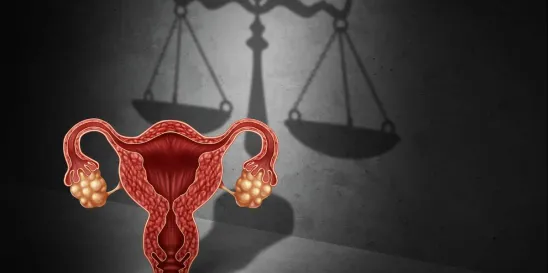A link to the DOJ’s press release can be found here.
As background, the Freedom of Access to Clinic Entrances (FACE) Act prohibits threats of force, obstruction, and property damage intended to prevent people from accessing reproductive health care services. The federal government may bring criminal charges to enforce the statute, as well as other federal criminal statutes where arson, firearms, and threats were also used to prevent access to reproductive health care clinics. However, following the US Supreme Court’s landmark decision in June 2022 in Dobbs v. Jackson Women’s Health Organization, in which the court overturned its prior rulings in Roe v. Wade and Planned Parenthood of Southeastern Pennsylvania v. Casey, reproductive health care clinics have faced concerns about how they can continue to safely provide services to their patients amid changing legal and political landscapes. These recent convictions go to at least some of those concerns.
Recent FACE Act Convictions
As proven by prosecutors at trial, six defendants — Chester Gallagher, Heather Idoni, Calvin Zastrow, Coleman Boyd, Paul Vaughn, and Dennis Green (Tennessee Defendants) — conspired to impede a Tennessee health clinic’s operations and physically obstruct both clinic employees and a patient seeking reproductive health services. Specifically, as part of the conspiracy, Idoni, Zastrow, Boyd, and Green traveled to Mount Juliet to participate in the clinic blockade. Gallagher and Vaughn delayed the Mount Juliet Police Department with deceptive negotiation tactics, while the other defendants obstructed the clinic’s employees and a patient seeking reproductive health services. The resultant convictions for these acts include felony conspiracy counts against rights as well as violations of the FACE Act.
These verdicts come in the wake of a separate round of convictions and guilty pleas previously secured by the DOJ. Initially, on September 15, 2023, a federal jury in the District of Columbia convicted three men on similar charges of obstructing access to a reproductive health care clinic to prevent patients from accessing the reproductive health services offered there. Prosecutors accused the defendants — Jonathan Darnel, Jean Marshall, and Joan Bell (DC Defendants) — of conspiring to obstruct access to a reproductive health clinic in Washington, DC.
Based on evidence presented by prosecutors during their trial, the defendants coordinated their scheme with other co-conspirators on Facebook before Marshall and Bell traveled to DC to participate in the blockade in October 2020. Once in DC, Marshall and Bell forced their way into the clinic, where they blockaded two clinic doors. Meanwhile, Darnell waited outside the clinic where, once the blockades were established by the other defendants, he live-streamed the actions of his co-conspirators on social media. Separately, five co-conspirators were previously convicted in August 2023 for engaging in the same conspiracy, and another co-conspirator previously pleaded guilty and was already sentenced to 10 months in prison.
Sentencing for the DC Defendants is currently set for May. Each defendant faces a maximum penalty of 11 years in prison, followed by three years of supervised release, and a fine of up to $350,000. Meanwhile, the sentencing hearing for the Tennessee Defendants is currently scheduled for July. Each defendant there faces a maximum of 10-and-a-half years in prison, three years of supervised release, and fines of up to $260,000. US District Judge Colleen Kollar-Kotelly will ultimately handle the sentencing for the DC Defendants, while District Judge Aleta A. Trauger will take the Tennessee Defendants.
Looking Ahead: Next Steps for Clinics Amid Ongoing Protests
Since Dobbs, health care providers, employers, and businesses across the country have been grappling with the consequences that have stemmed from the decision. For example, stakeholders have been striving to navigate the new legal framework applicable to abortion services, as well as contraception, fertility medicine, and gender-affirming care. These recent FACE Act convictions are a good illustration of the additional challenges clinic operators face in the post-Dobbs world. Accordingly, health care providers should assess the specific services they provide to evaluate the evolving legal requirements they face in this new landscape. Reproductive health care clinics in particular should consult with skilled advisors who can provide guidance on steps clinics should take to safeguard their services and the patients who seek them.




 />i
/>i
